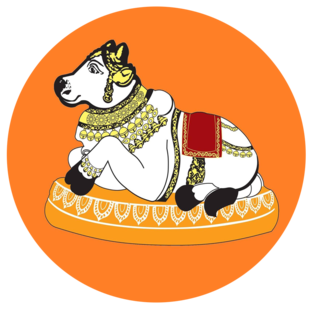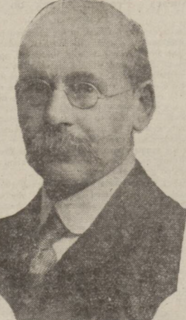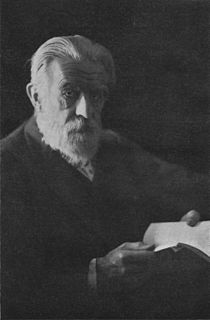Bhakti literally means "attachment, participation, fondness for, homage, faith, love, devotion, worship, purity". In Hinduism, it refers to devotion to, and love for, a personal god or a representational god by a devotee. In ancient texts such as the Shvetashvatara Upanishad, the term simply means participation, devotion and love for any endeavor, while in the Bhagavad Gita, it connotes one of the possible paths of spirituality and towards moksha, as in bhakti marga.

The Bhakti movement refers to the theistic devotional trend that emerged in medieval Hinduism and later revolutionised in Sikhism. It originated in eighth-century south India, and spread northwards. It swept over east and north India from the 15th century onwards, reaching its zenith between the 15th and 17th century CE.
Several contemporary groups, collectively termed Hindu reform movements or Hindu revivalism, strive to introduce regeneration and reform to Hinduism, both in a religious or spiritual and in a societal sense. The movements started appearing during the Bengali renaissance.
Bhakti yoga, also called Bhakti marga, is a spiritual path or spiritual practice within Hinduism focused on loving devotion towards a personal god. It is one of the paths in the spiritual practices of Hindus, others being Jnana yoga and Karma yoga. The tradition has ancient roots. Bhakti is mentioned in the Shvetashvatara Upanishad where it simply means participation, devotion and love for any endeavor. Bhakti yoga as one of three spiritual paths for salvation is discussed in depth by the Bhagavad Gita.
In the field of comparative religion, many scholars, academics, religious figures have looked at the relationships between Hinduism and other religions

Sadhu Sundar Singh was an Indian Christian missionary. He is believed to have died in the foothills of the Himalayas in 1929.
Eric John Sharpe was the founding Professor of Religious Studies at the University of Sydney, Australia. He was a major scholar in the phenomenology of religion, the history of modern Christian mission, and inter-religious dialogue.
The concept of God in Hinduism varies in its diverse traditions. Hinduism spans a wide range of beliefs such as henotheism, monotheism, polytheism, panentheism, pantheism, pandeism, monism, atheism and nontheism.
Channappa D. Uttangi was an Indian author and poet.
There is no formal canonization process in Hinduism, but over time many men and women have reached the status of saints among their followers and among Hindus in general. Hindu saints have often renounced the world, and are variously called gurus, sadhus, rishis, swamis, and other names.

Francis Xavier Clooney is an American Jesuit Roman Catholic priest and scholar in the teachings of Hinduism. He is currently a professor at Harvard Divinity School in Cambridge, Massachusetts. He has been nominated as the winner of the John Courtney Murray Award in 2017 for his distinguished theological achievement.
Bishop Emeritus P. Surya Prakash was the fifth Bishop-in-Karimnagar Diocese of the Church of South India. from 2007 through 2014 and occupied the Cathedra in Karimnagar's Wesley Cathedral. He retired on account of superannuation in 2014 following which the Church of South India Synod headquartered in Chennai appointed a successor to him in 2015.
Matthew Vellanickal is a New Testament scholar and a vicar general of the Syro-Malabar Catholic Archdiocese of Changanassery.
Kali Charan Banerjee (1847–1902), spelt also as Kalicharan Banerji or K.C. Banerjea or K.C. Banurji, a Bengali convert to Anglican Church, was the founder of Calcutta Christo Samaj, a Christian parallel to Brahmo Samaj.
Very Rev Dr William Miller DD LLD was a Scottish educationalist and Free Church of Scotland missionary to Madras. He was also a member of Madras Legislative Council for four terms—in 1893, 1895, 1899, and 1902.
B. Suneel Bhanu is President Emeritus of the Protestant Andhra Evangelical Lutheran Church Society who served a term from 2009 through 2013. At present, Suneel Bhanu teaches at the Gurukul Lutheran Theological College, Chennai.
D. W. Jesudoss was the Principal from 1992 through 2001 at the Gurukul Lutheran Theological College, Chennai, affiliated to the nation's first University, the Senate of Serampore College (University).
Rayi Ratna Sundara Rao was a prolific writer, theologian and comparative religion scholar who once served as the principal of the Gurukul Lutheran Theological College, Chennai, affiliated to the nation's first university, the Senate of Serampore College (University).











